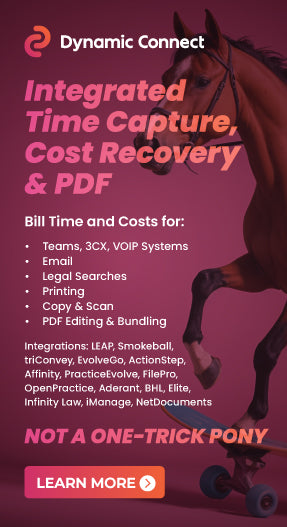
The Impact of Platformisation on Law Firm Efficiency
Platformisation isn’t new, but many industries are realising the efficiency gains they can achieve with it, so it’s attracting increased attention. As the legal sector digitally transforms, firms need to follow suit by investing in platforms rather than individual solutions. This means utilising the capabilities of core technology platforms more deeply and building apps and integrations that extend the platform further, which create a seamless, modern experience for users.
Take a mission-critical technology such as document or enterprise content management; the hub for all content, documents, emails, and content managed by the firm, internally and externally. The biggest requirement for law firm collaboration right now is to have a single system of record at the centre for both document organisation and enhanced collaboration. Without this, files have to be exported from one system to another. This increases the risk of a data breach, inhibits collaborative efforts with external organisations and dramatically limits what users can do.
Platformisation ensures that all solutions - such as document and email management, collaboration, task and discussion management, and set builders - share common storage in the cloud with a common search engine. This approach helps guarantee a single version of the truth, enabling legal staff to work more collaboratively, securely, and productively.
Why platformisation?
The overarching benefit of platformisation is its ability to improve efficiency. This is vital when considering that 61% of law firms and 70% of in-house legal teams cite efficiency as the primary driver of their technology implementations. But platformisation can also enhance governance and security, while driving user experience improvements.
When documents are taken from one location and imported into another, or separate collaboration platforms are in place, governance rules and data become fragmented. This not only creates a security risk but impacts business results and productivity. The infrastructure should ideally know automatically what the ethical and governance rules are for a given document and how the user can share the document externally. While in the past handing control over to external providers has been a blocker to cloud adoption, recent reports show 94% of businesses experienced an improvement in security after switching to the cloud.
Law firms need to move away from the mindset of simply making it easier to collaborate to instead make it more intuitive. Users should no longer expect to use multiple technologies with different interfaces or login details to collaborate. By taking a platform approach to document and email management, firms can ensure the user experience is as seamless as possible.
How to harness platformisation
Although there are many layers of technology that law firms need to assess when harnessing platformisation, it can be a simple process when implemented correctly.
- To begin with, law firms should create a list of all the systems and applications they currently use for information management and what functions each system supports.
- Next, identify all the capabilities needed to optimally manage workflows. These might include document and email management, optical character recognition, data loss prevention, real-time messaging, task management, secure external sharing, electronic signature, enterprise search, and collaborative capabilities.
- Finally, look for a content management platform with all of the capabilities identified in the previous step that can replace as many of the current systems and applications that are running independently.
A disjointed technology experience will only hold back law firms in the future. It’s now time for companies to ensure they have a future-proof technology platform that will enable an increase in productivity and security, enhance client service delivery and help retain talent by providing the modern work experiences users want.
For more information, access the webinar on Platformisation and the Evolution of Content Management.
Also read top viewed Ai Legal article: The Role of AI in Legal Research.






